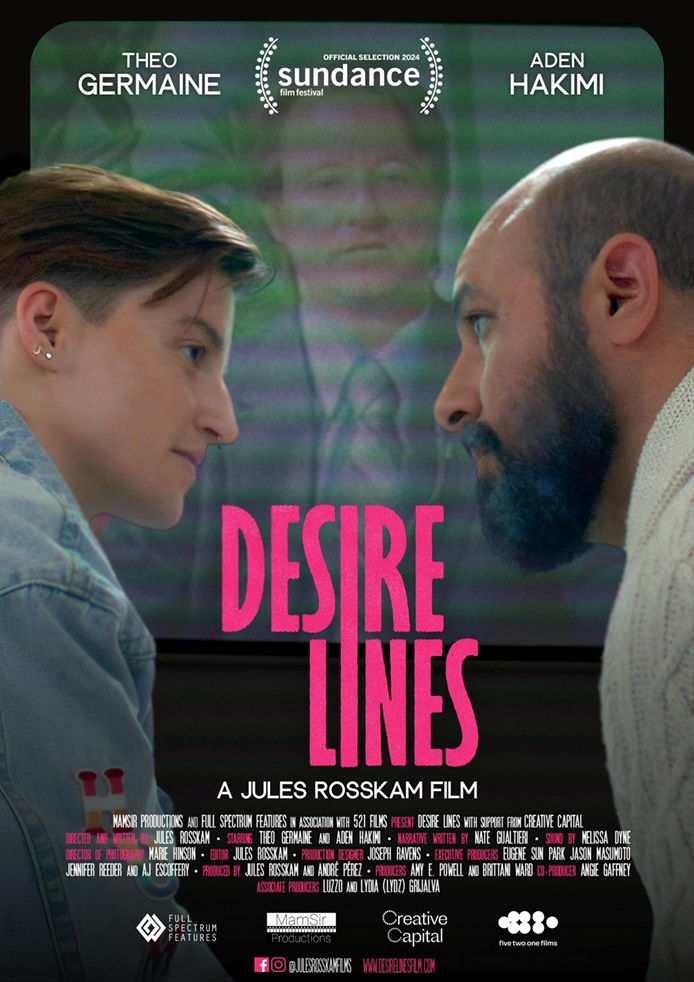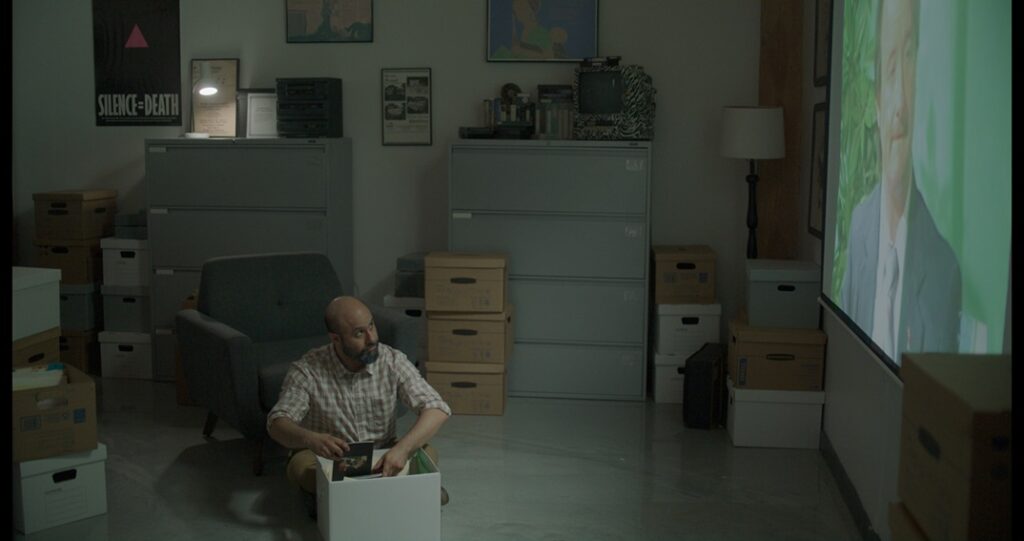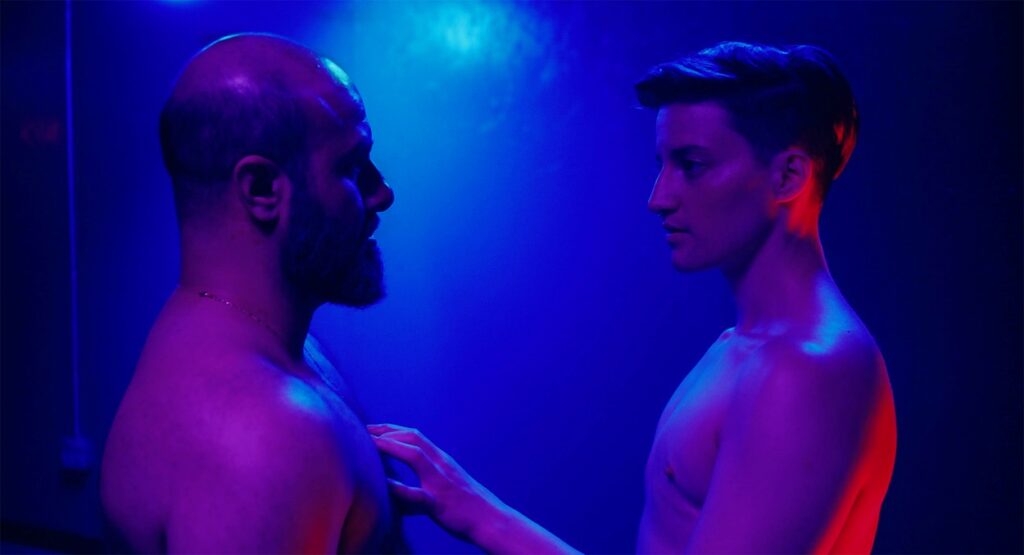
There are many components to gender and sexuality that much of the world’s population likely assumed didn’t exist until they heard others talking about them. This isn’t exclusive to those who identify as cisgender and heterosexual who have had their expressions of self broadly accepted by society. Desire Lines spotlights a particular population – transgender males who identify as gay – and examines how so many within it didn’t initially know how to acknowledge who they really were. Filmmaker Jules Rosskam takes an inventive approach to allowing them to share their true selves with a narrative-documentary hybrid that lets them be the stars of their own story.
Ahmad (Aden Hakimi) arrives at an LGBTQ+ archive to conduct research on how the existence of gay bathhouses helped people who didn’t know where they fit in the world start discovering that for themselves. He is greeted by Kieran (Theo Germaine), who is dealing with his own complicated relationship in the present. As Ahmad pores over files and testimonies, he is transported back in time to formative and representative cultural moments, interspersed with interviews with activist Lou Sullivan and present-day gay transgender men.

Rosskam is a director who has dedicated most of his filmmaking career to highlighting the lives and journeys of transgender men. Here, he allows them to speak about how they present themselves to the world and the way in which their evolution from being assigned female at birth to where they currently are has changed and affected them. There’s no clear indication in the film itself that these are indeed real people rather than actors reading either written testimonials or invented dialogue, but that’s simply because they are edited smoothly into a transformative experience that enhances what Ahmad can only read about, allowing audiences to see the very real people this film is centering.
There are considerable questions to be found in this film, and what Rosskam does is to provide a litany of answers, but not any one definitive conclusion to fit all sizes. Interview subjects speak about how having traditionally female organs while identifying as and being attracted to other males is a key component of their sex life, or how getting to that place wasn’t easy since those who might have been open-minded about their transition presumed that attraction to the opposite sex would still remain. There are layers to be peeled back within this discussion, and Desire Lines merely opens the door for that conversation, one that many more people will hopefully be having after seeing this film.

Casting two actors to anchor this story is an effective choice, and Hakimi and Germaine pair well together. Hakimi is quiet and understated, and watching him see his aspects of his research come to life in front of his eyes makes what the film is featuring even more compelling. Germaine, an alum of television series like The Politician and Work in Progress, adds just enough personality to make Kieran a three-dimensional person while keeping him as a stand-in for a certain confidence and comfort that Ahmad and many who came before him couldn’t necessarily even imagine.
Sullivan, commonly acknowledged as the first publicly gay transgender man, looms large over this film as his story serves as a catalyst for so many others to recognize who and what they are and to come out publicly as a result. Cutting between Ahmad’s research, clips of Sullivan being interviewed, and testimonials from those who grew up in a different and more accepting generation is extremely powerful. Desire Lines is hypnotic and enduring, a remarkably incisive work that should be seen far and wide, especially by those who believe they couldn’t possibly relate to the subject matter of this film.
Grade: B+
Check out more of Abe Friedtanzer’s articles.
Desire Lines makes its world premiere in the NEXT section at the 2024 Sundance Film Festival.

